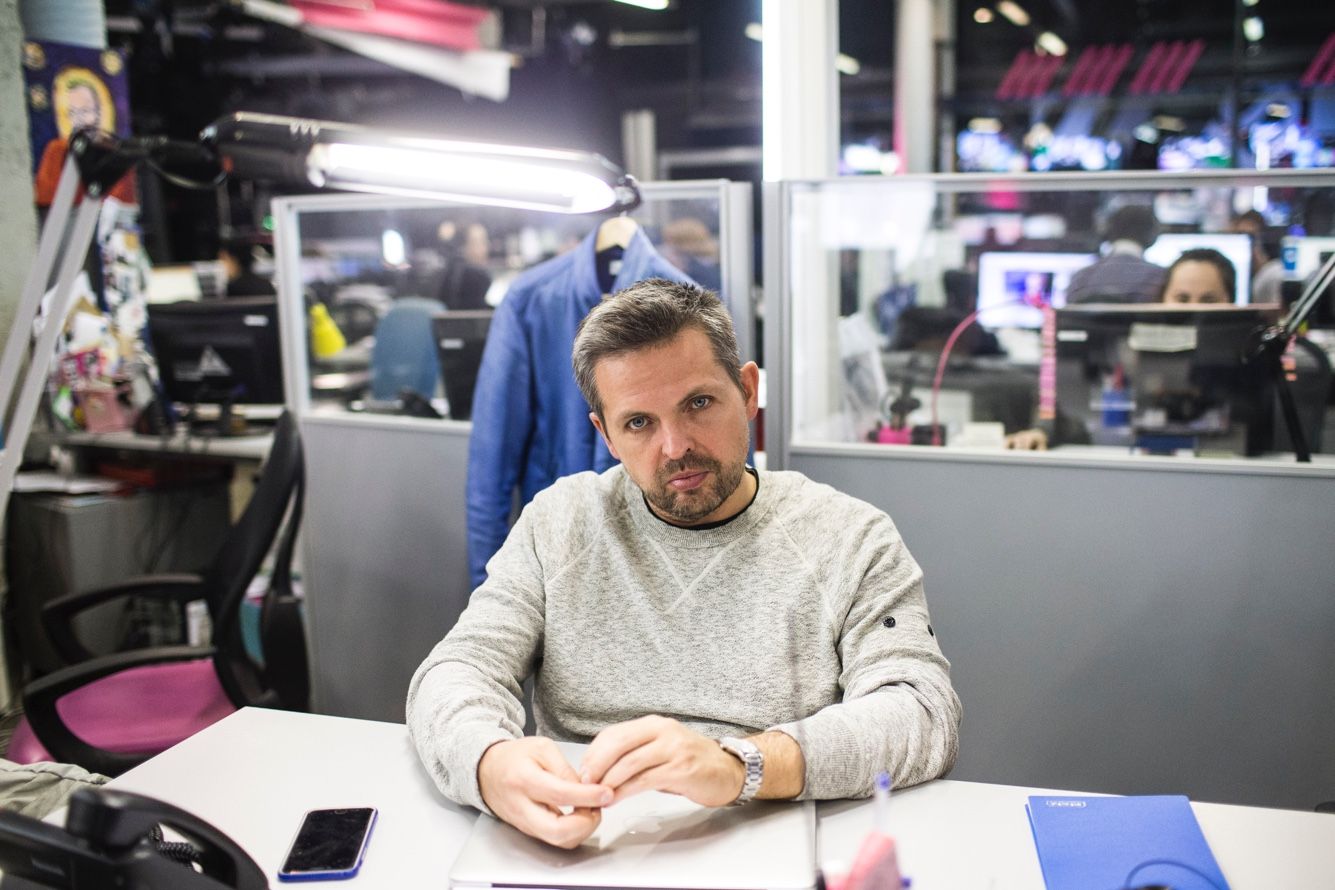Moscow police raid homes of Proekt journalists who investigated Russia’s top cop

Police officers in Moscow took three journalists from the investigative outlet Proekt in for questioning after searching their homes on the morning of Tuesday, June 29. The raids coincided with Proekt publishing a major investigative report into the alleged family wealth of Russia’s top police official, Interior Minister Vladimir Kolokoltsev. The author of the report, Maria Zholobova, was taken in for questioning alongside Proekt editor-in-chief Roman Badnin and deputy editor-in-chief Mikhail Rubin. Officially, the police raided the journalists’ homes as part of a criminal libel case over a 2017 journalistic investigation into alleged mobster Ilya Traber and his links to Vladimir Putin’s inner-circle. Though the statute of limitations for prosecution has technically lapsed, the three journalists have been declared witnesses in the case.
On the morning of Tuesday, June 29, police officers raided the Moscow homes of journalists from the investigative outlet Proekt. They searched the homes of editor-in-chief Roman Badanin, journalist Maria Zholobova, and deputy editor-in-chief Mikhail Rubin, who was detained outside Zholobova’s building after the police had begun conducting the raid. The officers seized two laptops from Badanin; from Zholobova, they confiscated laptops, mobile phones, flash drives, and SIM cards. After the searches, Zholobova, Badanin, and Rubin were taken in for questioning. They were released following the interrogations.
The three journalists are now considered witnesses in a criminal libel case that dates back to 2017. Zholobova told Open Media that she declined to answer questions from investigators, citing article 51 of the Russian Constitution, which states that no one is obliged to testify against themself. The searches were also conducted in connection with the defamation case, which was initiated in November 2017 at the request of St. Petersburg businessman and alleged mobster Ilya Traber.
The case was opened over the first episode of the documentary series “Piterskiye,” which the independent Dozhd network released that August. Authored by Roman Badnin and Maria Zholobova, the episode investigated “Ilya’s Traber’s secret business empire” and its alleged links to friends of Russian President Vladimir Putin. Mikhail Rubin wasn’t involved in working on the investigation.
The documentary recounts how Ilya Traber became involved in the antiques trade in the 1980s, “made a dizzying career in the shadow sector,” and became a “recognized crime boss” in the early 1990s. Citing the French press, the film asserts that law enforcement agencies in France consider Traber a “member of the Tambov Gang, which controlled the activity of the St. Petersburg port.” Traber was also a suspect in an investigation into a “Russian mafia” case in Spain.
The journalists described Traber as “the only living crime boss” that Putin admits to knowing. According to the investigation, Traber’s business partners were Igor’s Sechin “long-time acquaintance,” ex-Rosneft chief Eduard Khudainatov, and businessman Nikolai Shamalov — the father billionaire Kirill Shamalov, who, according to reports from Bloomberg and Reuters, was married to Putin’s alleged daughter, Katerina Tikhonova.
Roman Badanin was a suspect in the 2017 libel case, but the statute of limitations expired in 2019, according to Pavel Chikov, the head of the Agora human rights group. The case was initiated under Russian Criminal Code Article 128.1, paragraph 5: slander involving false accusation of the commission of a serious or particularly serious offense. As Chikov explained, up until January 2021, this was considered a low-level felony and had a two-year statute of limitations for prosecution. In January, it was recategorized as a more serious offense with a six-year statute of limitations, but Chikov insisted that the previous period of limitation should apply to events from 2017.
The police raids came on the same day that Proekt published an investigation into the alleged wealth of Russian Interior Minister Vladimir Kolokoltsev. Proekt announced the report’s release date the night before. Maria Zholobova authored the report, with additional contributions from Roman Badanin. Among other things, the report investigates the real estate holdings of Kolokoltsev's relatives, which have an estimated total value of more than two billion rubles, or about $27.5 million.
In a comment to Mediazona, Maria Zholobova’s lawyer, Vasily Kushnir from OVD-Info, linked the raids to the publication of the Kolokoltsev investigation. “The investigation that came out today, it took a very long time to prepare. In all likelihood, operational activities were carried out. Kolokoltsev could have known this, because ten men don’t arrive for libel — believe me, I’ve been working as a lawyer for 23 years,” Kushnir said.
Update. After his release from questioning, Proekt editor-in-chief Roman Badanin made the following comment to the press: “We at Proekt associate the attention on us not with [Ilya] Traber, but with the story about Vladimir Kolokoltsev.”
The Kremlin said that it doesn’t view the police’s actions as revenge against the investigative journalists. “There are legal grounds for such actions. We don’t know the essence of the law enforcement officers’ claims against these journalists. We also found out from media reports,” said Putin’s spokesman, Dmitry Peskov, on Tuesday. Peskov added that he couldn’t comment on the actions of the security forces because he hadn’t read Proekt’s investigative report on Kolokoltsev. Asked about Ilya Traber, the Kremlin spokesman confirmed that Putin “knows this name.”
In an editorial published later in the day on Tuesday, Proekt condemned the police raids as “an attempt to censor and pressure” its journalists and called on the authorities to put a stop to the investigative actions against them. Proekt also attributed the police raids and interrogations to the publication of its investigative report on Kolokoltsev’s alleged family wealth. “The investigators aren’t interested in how the relatives of people in government positions obtained property that they obviously can’t afford, but how journalists found about it,” Proekt said. “For the security forces [siloviki] the problem isn’t the actions of the main characters of journalistic investigations — for them, the journalists themselves are the problem.”
Story by Olga Korelina
Translation by Eilish Hart